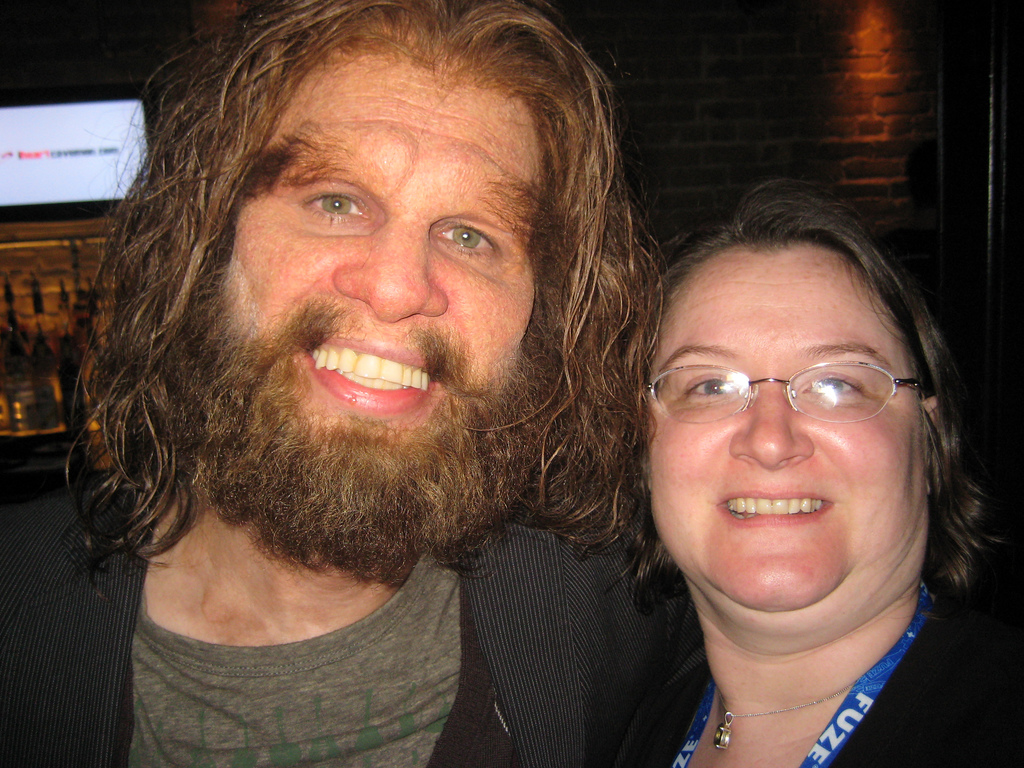Are You Smarter than a Caveman? The Answer May Surprise You!
I couldn’t sleep so I was channel surfing. The image of a man holding an ancient skull in his hands caught my attention so I paused to listen. The man with the skull was saying that Homo sapiens sapiens – modern humans – have been on Earth for as long as 90,000 to 130,000 years. (Recent research pushes the estimate closer to 200,000 years!)
Then as an aside, he commented that if we were to clone a child from the DNA of the 100,000-year-old skull he was holding, and raised the child in a modern family, that child would be indistinguishable from any modern child.
Epiphany!
In that instant I had a sudden insight. I realized that evolution was not what I had believed. Human evolution wasn’t about growing a different kind of thumb or toe or developing a more adaptable body. It wasn’t even about developing a bigger brain. For more than 100,000 years, all the “action” in human evolution has been in the realm of consciousness. It’s about how we think.
It’s Not Our Genetics
100,000 years ago the world was quite different. People lived as hunter-gatherers and there were no computers, cars or skyscrapers. Was there music? I’d like to think so. Perhaps there were stories; but there were no books, no libraries, no schools. Yet all the raw materials we have used to create the familiar things of our modern world have existed in the world all along. Now, we could argue the whether we have used that raw material well or wastefully – but that’s not my point. Over the millennia humans started to think differently. What separates us from our ancestors isn’t so much our genetics; it’s our imagination.
Thoughts Affect the World
Everything ever made by humans – every car, toy, building, movie, basket or loaf of bread – began with a thought. Sometimes it can seem that a building or a computer or a Shakespearean sonnet simply gave rise to itself. We take most of the fixtures and furniture of our daily lives for granted. Where did that piece of paper come from? The television? The kitchen tile? If you answer “the shopping mall” you are only partially correct. Where did the shopping mall come from? Every bit of it is the product of human imagination. And the interesting thing is, nothing in the physical, natural world has been added or taken away, only changed. Such is the power of thought: Thoughts create things. But that’s not the only power of thought.
Thoughts Affect Your Biology
Science now knows that thoughts create biological events. Turns out neurotransmitters are found not only in the brain, but everywhere in the body. The new science of psychoneuroimmunology describes how each thought precipitates a cascade of biochemical events in the body. Over time these biochemical events dramatically influence the health and well-being of an individual throughout life. Too much stress not only creates mental distress, it also contributes to disease. (Candace Pert, M.D. talks about her pioneering research in her bestselling book Molecules Of Emotion: The Science Behind Mind-Body Medicine.)
“Fight or Flight”
We humans evolved to deal with a harsh natural world where it was a constant struggle to find food and shelter. We were hunters but also prey. Our nervous system developed physiological strategies to keep us alive commonly known as “fight or flight.” When faced with a threat our bodies kick into full throttle using a flood of biochemicals which allows our bodies to move fast. Eyes dilate, and our visual focus narrows. Heart and breath rates speed up dramatically as blood flows away from inner organs to the muscles. These chemicals are very “expensive” and create a lot of cellular wear and tear.
The problem is our mind creates the same chemical cascade to help us fight or flee whether the threat to survival is imagined or real. The same physiological responses that helped our ancestors outrun a predator are now provoked at the mere thought of losing one’s job or missing a car payment. Our modern imaginations treat these common situations as life or death events even though our lives aren’t literally at risk in the moment. The irony is that the same system that evolved to keep us alive is now contributing to an early demise!
The Power of “R & R”
The “fight or flight’ system is called the Sympathetic Nervous System. But it’s only half of the story. Fortunately our bodies also have a “rest and repair” system (I call it R & R) known as the Parasympathetic Nervous System. Ideally the Sympathetic and Parasympathetic systems balance each other. After escaping a life-threatening situation, the body will automatically go into a parasympathetic state. A completely different cascade of chemicals helps us rest, digest our food and most importantly, relax and heal. For our ancestors, this happened naturally but in our modern world, we rarely have a moment without some kind of threatening information flooding our senses. We “civilized humans” desperately need to allow more time for R & R!
R & R Activities You Can Use to Reduce Stress
- Meditation
- Yoga
- Tai Chi
- Qigong
- Relaxing in Nature
- Massage
- Music
- Laughter
- Guided Visualization
- Hypnosis
